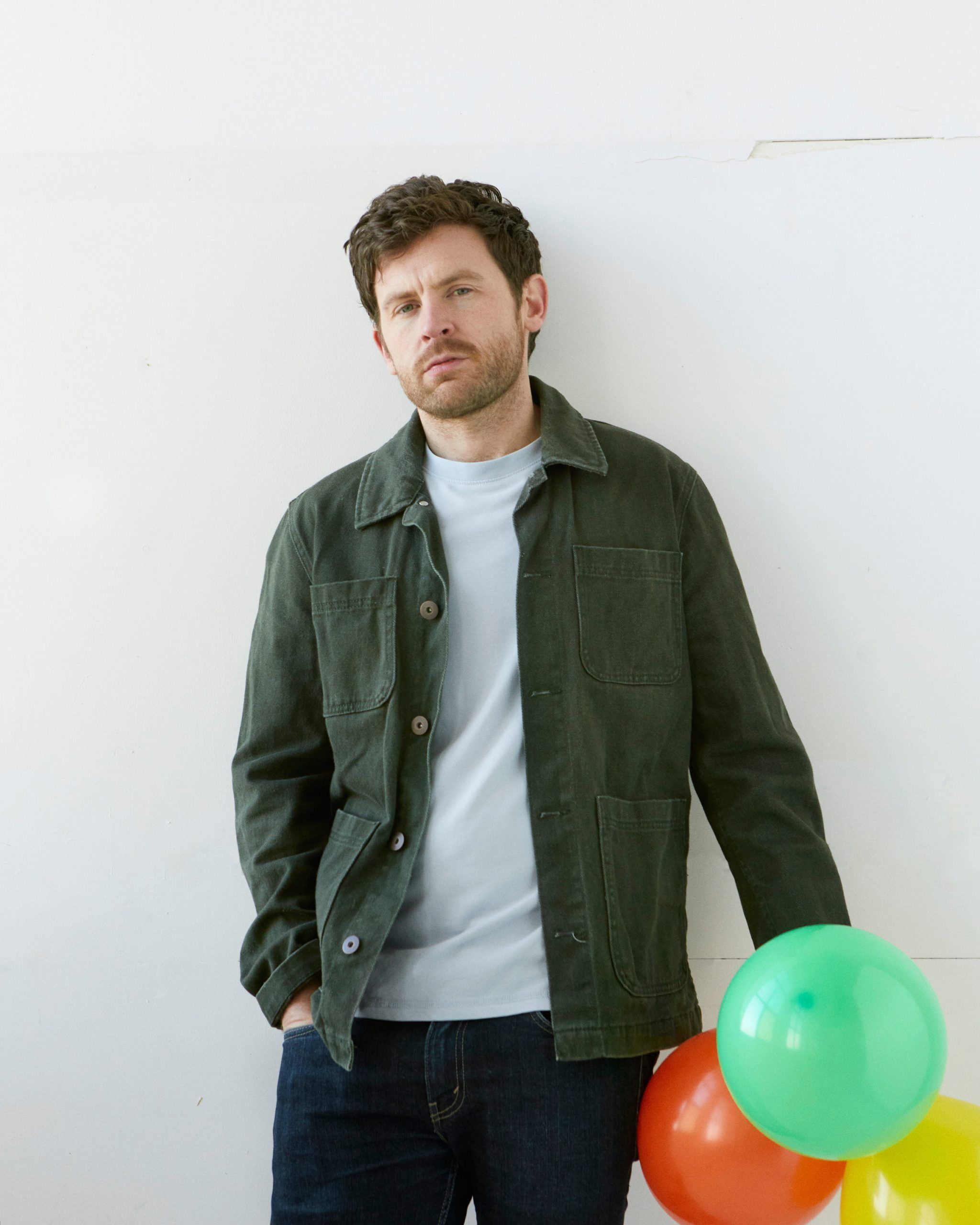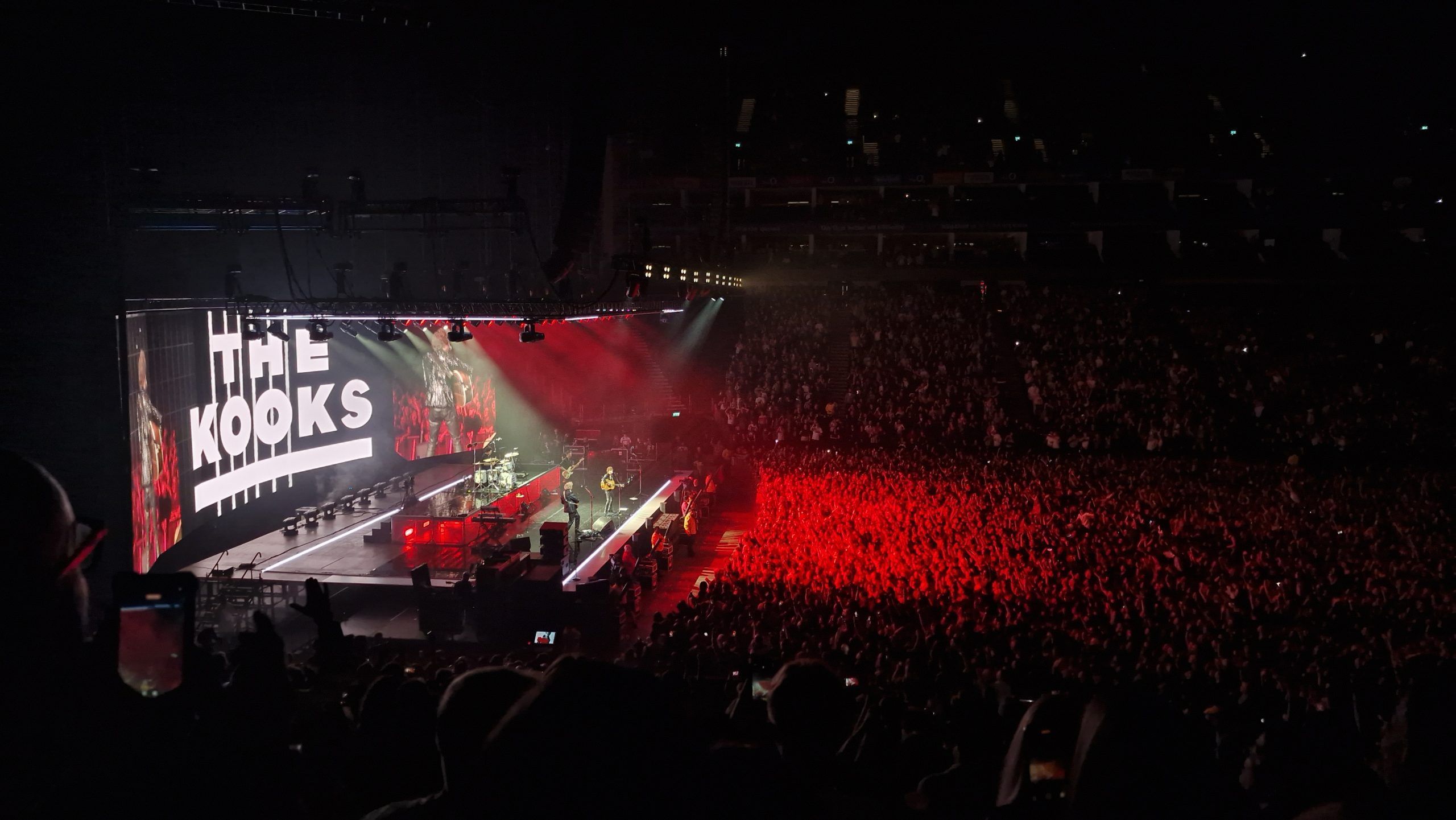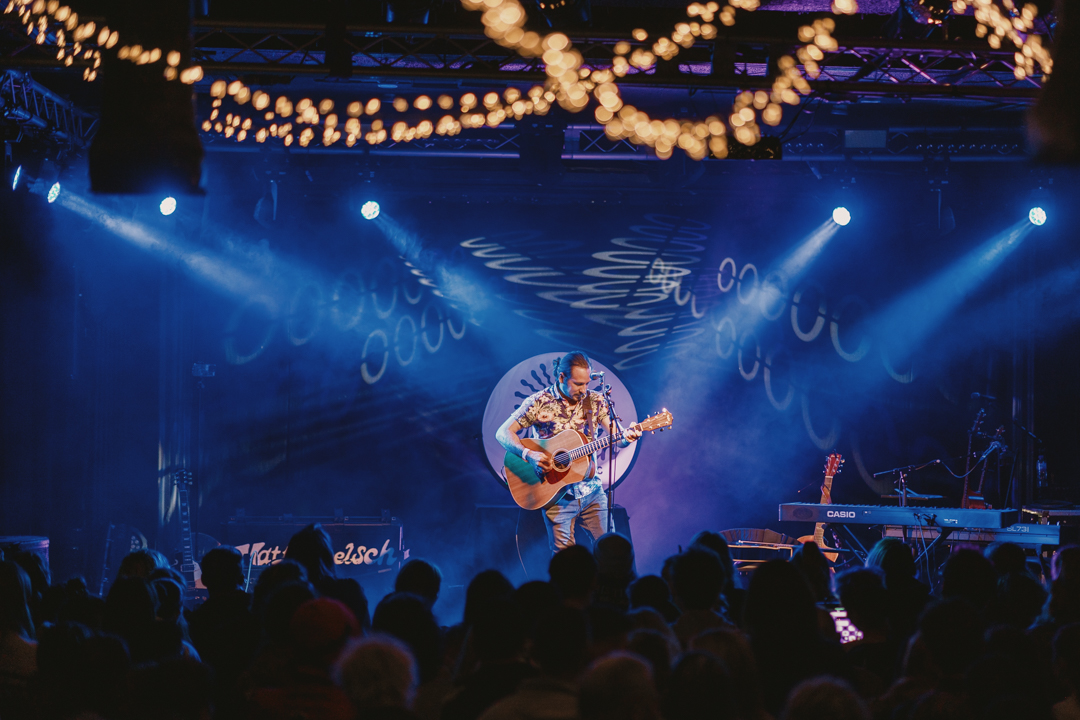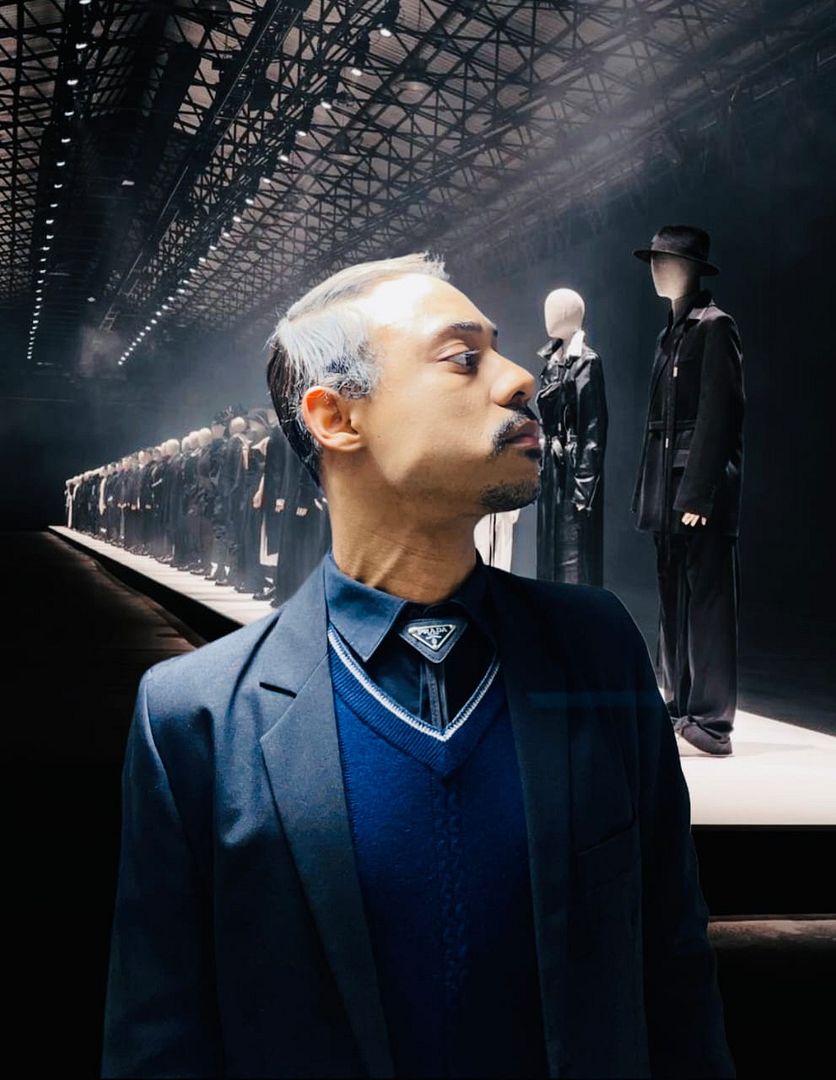
The Prince of Rock sits down with 1883 Magazine to discuss his new Album, Do Gears Know They Are Gears?
Five years have passed since the world first heard The Doors of Perception or In the Beginning Was the End,tracks from an album that still echoes in the modern wave of alternative rock. Now, the wait is over. British-Brazilian, singer-songwriter and model Saulo Oliveira S. — known worldwide as The Prince of Rock — is preparing to release his long-awaited sophomore album, Do Gears Know They Are Gears, a haunting, philosophical work already being whispered about in industry circles as a decade-defining release. The artist, as enigmatic as he is charismatic, has spent the last half-decade off-spotlight, away from the noise, traveling and learning just to return with a sharper vision and deeper artistic purpose.
Saulo’s music debut took place in 2013 when he composed the score for the documentary Ethics, Politics and Citizenship, which he also directed. Then came a six-year hiatus from music, during this time he graduated in law at the Pontifical Catholic University of Paraná.
In 2019, he started to release songs notorious for its sophisticated lyrics with subtexts from British and American literature, metaphors, coded symbolism in the imagery, political positioning, voice effects with phrases in reverse, mixing of instruments in stereo and loud spasmodic screaming and extrapolating into shouting, all elements which, combined, amalgam his “Underproduced-Underground” era, an experimental year in which Saulo was committed to a purposefully raw technical texture that would cause an immediate impact on the listener.
As part of this era, starting in February and finishing in October of that year, are the singles Johnny Ride, Old MTV, Kool Kids Klub, What Governs Behind Them, Like We Used to Do and Antichrist-Mas.
In 2020, Saulo released the concept album Wild Horizon and the single Lockdown.
And in 2022, he released the single Renewing Rock and Roll and the single Macneil, both present in the acclaimed EP Prince of Rock, also released that year.
While his peers leaned into streaming trends and viral hooks, Saulo studied the 19th century’s orchestral movements. Quite literally. During his most recent hiatus, he enrolled in a specialized course from Harvard University’s Faculty of Arts and Sciences, immersing himself in the complexities of Beethoven’s Ninth Symphony and the socio-political weight of Romantic orchestration. His work is richer for it — intellectually bold, emotionally devastating, and unapologetically cinematic.
But Saulo is not merely a sonic craftsman; he’s a visual icon too. With his signature all-black attire, sculpted presence, and ever-evolving stage persona, he continues to turn heads in the world of fashion. Just last month, he made a show-stopping appearance at Curitiba Fashion Week, stepping onto the carpet in custom Dior B23S with the kind of poise that only rock legends and runway stars can pull off.
Now, as the release of Do Gears Know They Are Gears approaches this November, the artist sits down with us for a rare interview. Speaking candidly about his creative process and existential theme, he shares a glimpse into the slow burn that shaped this new chapter.

Your new album has such a profound and mechanical-poetic title. Where did that concept come from? “Do Gears Know They Are Gears” sounds almost like a riddle. What led you to that title?
It came to me in the backseat of a cab while listening to Hotel California. I was thinking about how people move — in loops, in jobs, in habits — and whether awareness changes the loop. Does knowing you’re part of a system free you or trap you deeper? Then I started to remember one of the interpretations about that song as the song in the cab reached “but you can never leave.” I mean, who would want to leave the Beverly Hills Hotel? Precisely, I thought, wanting might be the key. Wanting, not wanting, the free will. Being aware of this system gives one the power to leave? Can we find the way out of this maze? Do gears know they are gears? The title haunted me for weeks. I wrote it down and knew it had to be the centre of the next record. But that’s only because my other choice was too long to be the title.
There’s a lyric in “Maze” that feels almost like a thesis: “When I’m dreaming and then I realize I’m dreaming…” — can you unpack that line for us?
That’s the existential question, isn’t it? We like to believe awareness equals control, but sometimes even the realization of being inside a dream is just part of the dream. That lyric came from a lucid dream I had — where I tried to burn the world throwing flames from my hands flying over places. At a certain point occurred to me “Well, I know I’m dreaming, I could do plenty of things other than just burn the world, but I’d rather wake up now cause I gotta a lot of stuff to do.” So, I just opened my eyes and moved along with the day. Later, then, I wrote it down “When I’m dreaming and then I realize I’m dreaming and decide to do whatever I want inside that dream do I have the control of that dream or am I just dreaming that I have control?” Too long for a title? Probably. Unless you are Lana Del Rey.
You read a lot. How did your studies, particularly that Harvard course analyzing Beethoven’s Ninth and the 19th-century orchestral form, influence this new record?
It taught me that emotion isn’t about volume — it’s about architecture. Studying Beethoven, I saw how every movement serves a larger narrative. That’s what I tried to do with this album: each track is its own chapter, but they’re all gears in one machine. Everything is there for a reason. Buckle up, come on up on board. It’s a fun journey, with the best stereo headphones, preferably, I might say.
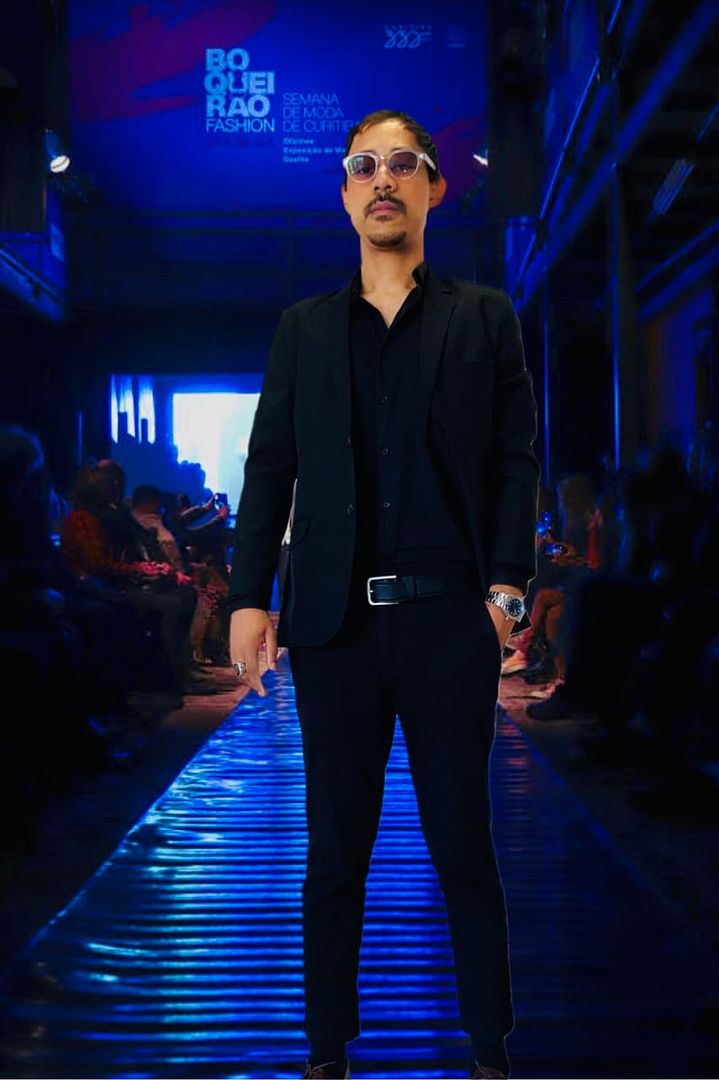
In Hilltop you sing “And it grinds my gears how in the middle of the night that sleep paralysis wraps itself around me.” Is it about you? If so, how did such sleep disorder experiences shape the sound and spirit of this album?
Yeah, that’s me. I hate when that happens. It’s less frequent thou. But there’s the lucid dream approach in Mazeand the sleep paralysis in Hilltop, and the first line of Nighthawks describes a nightmare. There’s a lot of what happens in my subconscious in this album. That’s the spirit, the spirit of me in bed getting possessed by these demons.
You’ve been described as a “musician for people who read,” and also as a “rock star for people who don’t like rock.” Does that duality amuse you?
I don’t bother. Labels are like coats: they only fit for a season. I want to make music that fits a variety of moods, upbeat, downbeat, happy or not happy and so on. If someone listens to my songs and then revisits Camus or doesn’t give a shit about what I’m saying and just walks slower down the street feeling the vibe of it, I’ve done something either way.
Your first album had a raw, immediate energy. This one feels more existential, cinematic. How would you describe the evolution in your sound?
The first one was fire — this one is smoke. It lingers. I’ve learned to write with restraint, to trust that the absence of a sound can speak louder than distortion. It’s more composed, more orchestrated. But that doesn’t mean it’s colder. If anything, it’s more well-structured now.
It’s been five years since your last album. What changed in you — emotionally, intellectually, artistically — during that time? Speaking of the due, what is it that you have with hiatus, why does it take so long for a comeback?
I think I became more silent — and not just vocally. I learned to listen more: to music, to cities, to silence itself. The first album was an eruption, a raw thing, a garage-made thing. This time, I didn’t need to shout. I just needed to make something that could stand still and reverberate eventually. I let the pause become part of the music. There’s a thing Lydia Tár brilliantly said that still sticks with me, now, more in a lato sensu than ever, but, of course, specifically in music, that if by dealing with music you end up keeping time “(…) that’s no small thing. Time is the thing. Time is the essential piece of interpretation”. That made me acknowledge a bit of responsibility for this hiatus. And that’s so true, in a performance, regardless of whether artistic or not, the pause could have the same impact as the pulse. I mean, what happens between systole and diastole? You gotta find the balance to reach the best outcome of it. I did it. In music notation the G.P. symbol in the score stands exactly for what it means, a grand pause, and the value of that it’s on the performer’s discretion, extra-metrical without a fermata even. Simply put, those five years of introspection became fifty years, five hundred centuries and then, five minutes, all in one. All of a sudden, after my relative travel experience, the album was finally ready for release. Everything changed and what’s more, I’m resisting time itself by not taking for granted the changes of seasons.
You’re known for overseeing everything, from production to album art. Why is total creative control so important to you?
Because I believe in intention. If you leave cracks in the process, the soul leaks out. This isn’t just an album — it’s an ecosystem. I designed the cover like I designed the drum tones. It’s not about perfection, it’s about alignment. I want people to enter this universe and not question a single detail.

Do you ever feel pressure to balance your persona as a fashion icon and your identity as a deeply reflective musician?
Not really. They feed each other. Style, for me, is storytelling without words. And music is fashion for the soul. I’m not interested in being an image — I’m interested in being. Whatever I wear I want it to be comfortable.
What’s the central message or emotional arc you hope listeners take from Do Gears Know They Are Gears?
I don’t know. Let them decide. My honest opinion about this would be “Please, please, people of this planet, do listen to this shit endlessly on repeat so I can make a lot of money and vanish from the public eye for another five or six years in the comfort of my wealth.” But that’s not very diplomatic to say, so, I won’t say it.
Now that the album is just months away, how do you feel? Excited? Vulnerable? Or is this just another gear turning in your journey?
It feels like opening a time capsule you buried yourself and forgot about. The songs still hunt me. I don’t know if they’ll change the world, but they changed mine. That’s what that is. The gear keeps turning, sure. But maybe now… It’s aware of its own rhythm.
Saulo Oliveira’s sophomore studio record Do Gears Know They Are Gears? is out in November.
Written by Heather Benson

